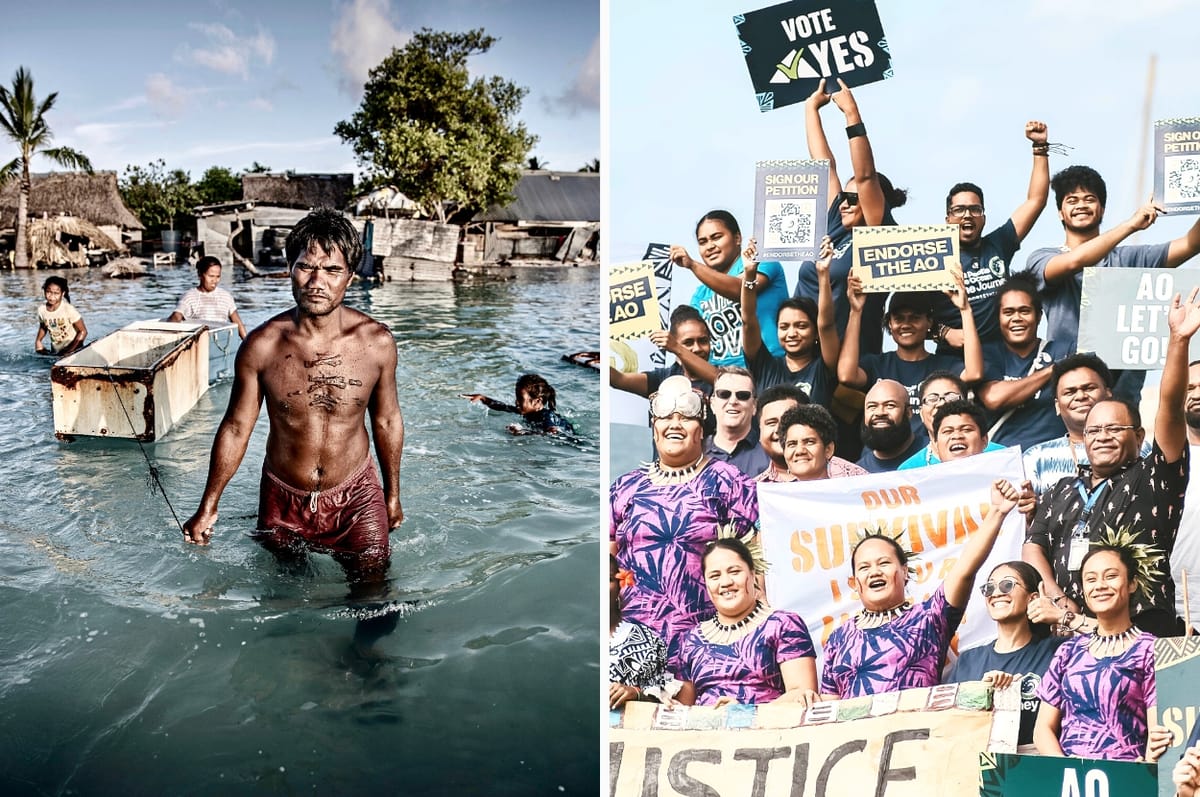After These Pacific Islands Students’ Work, The UN Asked The World’s Top Court To Examine Climate Change
The resolution was spearheaded by the Pacific Island of Vanuatu, after a group of students across the Pacific Islands launched a campaign.

In a historic moment for climate justice, the United Nations has passed a resolution calling for the world’s top court to examine climate change.
On Wednesday March 29, the UN passed a resolution calling on the International Court of Justice – or ICJ – to issue a legal opinion on climate change and human rights.
The resolution was spearheaded by the Pacific Island of Vanuatu, after a group of students across the Pacific Islands launched a campaign for an ICJ advisory opinion on climate change.
“Climate change is not an abstract issue but a reality for us [in the Pacific Islands],” Cynthia Houniuhi, the president of the Pacific Islands Students Fighting Climate Change, which started the initiative, told Almost.
Houniuhi hails from the Solomon Islands and is currently studying her masters in law at the University of New South Wales in Australia.
“In my country and part of the world, climate change impacts us disproportionately,” Houniuhi said. “For us, it doesn’t only take away our livelihoods, but it takes away also the lives of our loved ones. It takes away our land, which we base our identity on. It also takes away the opportunity for myself and our future generations to practice our culture, to speak our languages. It takes away our sovereignty when we have to pack and move to an unknown world.”
“It takes away a huge part of me that I can never get back,” she added.
“For us in the Pacific, we contribute little, if not nothing, to climate change, but we are bearing the brunt of the adverse effects of it,” Houniuhi said.
She said she and other law students from the Pacific Islands decided to launch the initiative because the pace of climate action was not proportionate to the rate climate change is hitting their communities.
“Climate change is the greatest threat to what we hold so dear to us in our cultures in the Pacific, and I will fight like my life depended on it, like those before me have, to ensure that the future generations have a life of dignity and cultural identity,” Houniuhi said.
An advisory opinion is not legally binding like the ICJ’s official rulings, but it does carry a lot of authority and weight.
Activists say it will provide clarity on countries’ legal obligations to respond to climate change and to protect the rights of current and future generations, as well as serve as a reference and tool that people can use to hold their governments accountable for climate action.
The ICJ will now examine the questions asked by the UN with relation to climate change and human rights, with an advisory opinion expected in 2024.
The resolution, which passed by consensus, comes just days after the UN issued a climate report warning that humans far short of limiting global warming to 1.5°C or even 2°C, which is the goal of the Paris Agreement.





